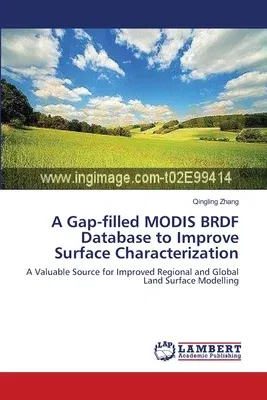Qingling Zhang
(Author)A Gap-filled MODIS BRDF Database to Improve Surface CharacterizationPaperback, 11 July 2012

Qty
1
Turbo
Ships in 2 - 3 days
In Stock
Free Delivery
Cash on Delivery
15 Days
Free Returns
Secure Checkout
Print Length
152 pages
Language
English
Publisher
LAP Lambert Academic Publishing
Date Published
11 Jul 2012
ISBN-10
3659167983
ISBN-13
9783659167980
Description
Product Details
Author:
Book Format:
Paperback
Country of Origin:
US
Date Published:
11 July 2012
Dimensions:
22.86 x
15.24 x
0.89 cm
ISBN-10:
3659167983
ISBN-13:
9783659167980
Language:
English
Location:
Saarbrucken
Pages:
152
Publisher:
Weight:
231.33 gm

